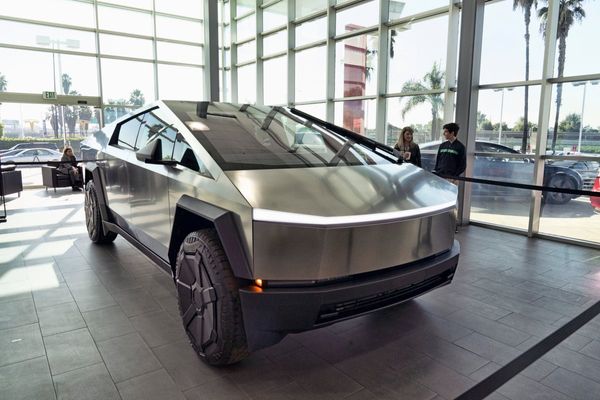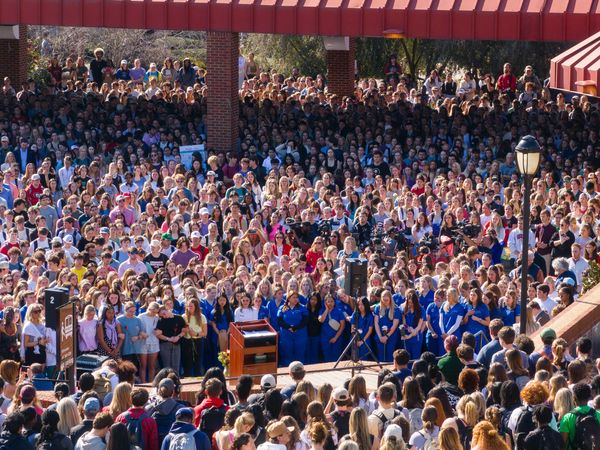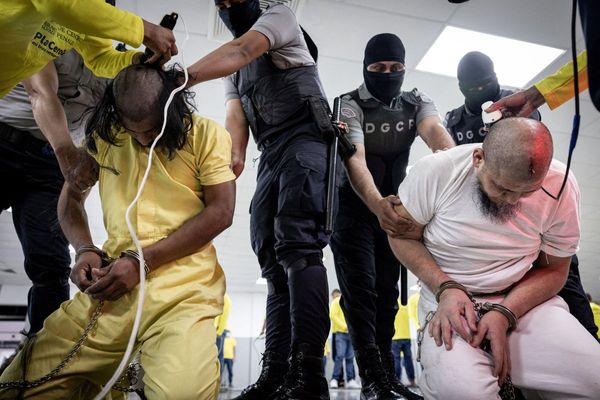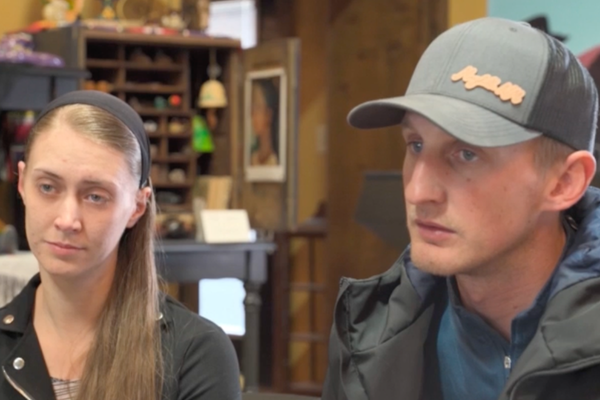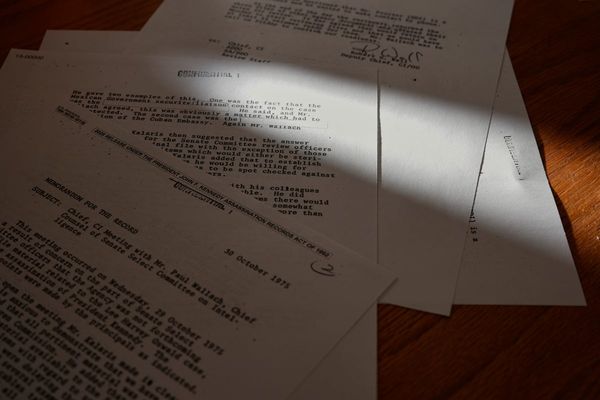
Donald Trump shared several AI-generated images of Taylor Swift and her fans vowing their support for his presidential campaign on Sunday, reposting them with the caption “I accept!” on his Truth Social platform. The deepfakes are part of a slew of images made with artificial intelligence that the former president has disseminated in recent days straddling the line between parody and outright election disinformation.
The AI-made images Trump shared over the weekend depict a series of young, smiling women in “Swifties for Trump” T-shirts, as well as one that shows Swift dressed as Uncle Sam encouraging people to vote for the Republican presidential nominee. Each image is a screenshot from X, formerly known as Twitter, and was originally posted by rightwing accounts with a history of sharing misinformation. Swift has not endorsed Trump.
Trump’s posts come days after he also shared an AI-generated image that depicted Kamala Harris holding a communist military rally at the Democratic national convention, as well as a deepfake video of him dancing with the X owner, Elon Musk, who has endorsed him. Trump’s embrace of AI-generated imagery threatens to further cloud an already murky information ecosystem around the 2024 presidential election. The former president routinely promotes falsehoods and conspiracy theories.
— Donald J. Trump (@realDonaldTrump) August 18, 2024
Concern over AI-generated content influencing elections has persisted throughout the recent boom in generative artificial intelligence, with researchers warning for years that the technology has the potential to make it easier to create disinformation campaigns and flood online platforms with low-grade content. AI-generated misinformation has circulated around elections all over the world, as video and images are used to troll opponents, fake endorsements and create deepfake audio intended to damage candidates.
While Trump shared AI-generated images in the past week, he also falsely claimed that a genuine image of one of Harris’s campaign rallies was the result of artificial intelligence and that the well-documented event never took place. His claim reflected a concept which disinformation researchers call the “liar’s dividend”, in which an increase in manipulated content leads to general skepticism of all media and makes it easier for people such as politicians to dismiss authentic images, audio or video as fake.
— Donald J. Trump (@realDonaldTrump) August 15, 2024
Although most AI image generators from industry mainstays such as OpenAI or Microsoft have put guardrails on what they can create, banning images of public figures and declining prompts for political imagery, some users have found workarounds for some AI models or turned to others that lack such safety measures. Musk’s Grok image generator, which debuted last week, is able to create a range of images based on prompts that similar tools will reject and has led to a recent spike in AI content around the election. These include images of political leaders, celebrities and copyrighted works, as well as sexualized and violent content.
Almost immediately after Musk released Grok’s AI image generator, deepfake images of Trump and Harris proliferated on X. Many news outlets also reported that the tool could create images of Swift, which was notable given that earlier this year AI companies faced intense backlash after sexualized deepfakes of the pop star circulated widely on social media. Swift has not endorsed a candidate for president, but in 2020 harshly criticized Trump for “stoking the fires of white supremacy” and vowed to vote him out of office.
Other Republican groups have also dabbled in sharing AI-generated imagery this election season, including Ron DeSantis’s campaign during his failed bid for the GOP nomination. The Florida governor’s campaign shared a fake image of Trump hugging Anthony Fauci, who is a frequent target for conservative attacks. The Republican National Committee also sparked controversy last year when it released a partially AI-generated attack ad against Joe Biden, depicting a hellscape following his hypothetical election win.

